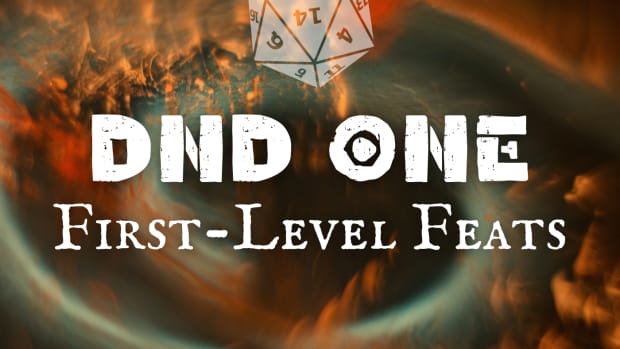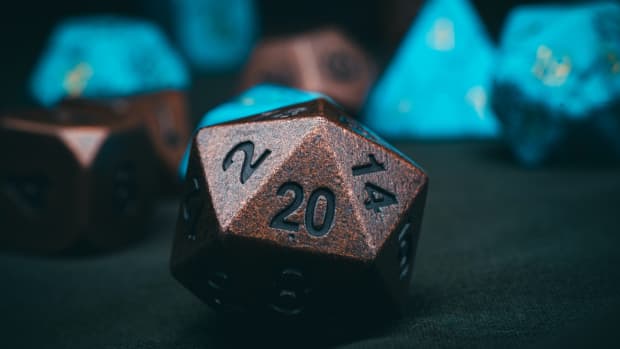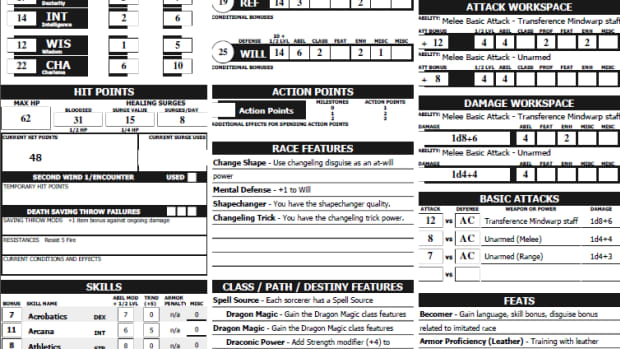Most Beginner-Friendly Classes in 5E Dungeons & Dragons
Beginner-Friendly Classes to Help You Ease Into 5E D&D
Tabletop RPGs like Dungeons & Dragons are amazing games that provide a truly unique experience. The campaigns run around gaming tables and lead to fun afternoons, deep friendships, and amazing memories that last for a lifetime for many of us.
The current edition, 5th Edition (often referred to as "5E"), is easily the most beginner-friendly version that has ever been made. This is great because it has brought in so many new players, and it's an ideal TTPRG system to introduce to beginners.
Even so, there's no question that it is much harder to play some classes than others. If you have new players coming to the table, or if you're a new player and are worried about learning all the rules and how to play, picking a beginner-friendly class is an easy way to jump into a game.
This can help you to hit the ground running, even if you don't feel like you have any idea of what you're doing. Learn the system while helping the team with a beginner-friendly build: It's a win-win!
Best 5E Classes for Beginners
- Barbarian
- Fighter
- Rogue
- Ranger
- Sorceror
1. Barbarian
Barbarians are the simplest class if you tend to get intimidated by new games or experiences. They get tons of hit points, get angry (aka "Rage!"), and then attack. No matter what sub-class of barbarian is used, you will have high hit points (making it harder to die), decent armor, and you'll rage to get additional barbarian benefits.
Level up, rinse, and repeat.
The barbarian is one of the easiest classes to play, but it can still take many flavors for roleplaying, and it teaches the basics of combat and making class-related decisions as you level up. Barbarian is a great beginner's class, especially for tank and melee fights, and lets you get your feet wet without having to worry about too much.
Plus, roleplaying a quick-to-rage brawny barbarian is a blast, whether you're starting fights as a half-orc or letting out a high-pitched battle squeal as a female gnome barbarian channeling all her inner Napoleon complex into a battle rage!
2. Fighter
While it's often joked that fighter is the basic of basic classes, there are some nuances and decisions during level-up that do make it a bit more complicated than playing a barbarian, but fighters are still one of the best introductory classes to play.
The Pros
- They can use all weapons
- They can use all armors
- Good at defending and attacking
Fighters can be fairly simple to play, though as you level up, you will need to choose a fighting style and certain bonuses, and you will want to look at feats since fighters get access to more than any other class.
This can feel a bit overwhelming, but the choices are all explained really well, so you pick your style of fighting and build off of that.
Playing a fighter teaches you how to handle multiple mechanics but keeps them simple so you won't feel overwhelmed. That's a very good skill to learn before taking on other, more complex classes.
Fighters are also a very solid class, so you'll have no problem helping in combat in your campaign!
3. Rogue
The rogue is a pure martial class that is the opposite of the fighter or barbarian. Instead of being front-line and the center focus of combat, the rogue likes to sneak. This is a stealthy character who might pick a pocket, follow a suspicious individual, or stay in the shadows while scouting ahead for the party.
In combat, they are all about one sudden huge surge of damage from a sneak attack before disengaging from danger and sneaking back into the shadows.
Rogues are known for being good with a large number of skills, which is a great way to learn that part of the system while actually being capable of succeeding on more checks than you fail.
A well-balanced character who can do a lot of things in and out of combat for the party.
4. Ranger
Ranger is a great "A little bit of everything" build. They can be a little bit underpowered for a full 20-level campaign, but by the time you get past level 10, you'll understand the game enough to do things like grab feats or multi-class.
Rangers tend to be built as archers. They also have spells that heal, support the party, allow them to talk to and alter nature, and increase party stealth.
Add in weapons in case close combat happens, and Rangers are stealthy scouts who fight and toss magic. If you want to learn a little about how all the systems work (stealth, combat, magic), this is an excellent class to dabble into just a little bit of everything.
Ranger was my first character. I chose one of the worst starting races stat-wise (Half-Elf) to build a ranger, didn't optimize, took way too long to figure out my magic could be useful, rolled terribly, and still had an absolute blast playing D&D.
Don't let worry stop you—if you want to learn a bit of everything and love the idea of playing a ranger, go for it! It's a good beginner choice.
5. Sorcerer
The sorcerer isn't an easy class to play per se, but as a pure casting class for people who love the idea of using magic, the sorcerer is easier to play well than the wizard, warlock, cleric, or bard. Because of that, sorcerer does make the list because some beginning players might want to be a full caster from day one.
In that case, the sorcerer is the best way to go. You have access to all the spells you know, you don't need to specialize like a wizard or understand the mechanics in-depth (which helps immensely with the bard), and you still have access to most wizard spells.
Sorcerers have some really fun sub-classes, so you can add a bit of flavor ... and the wild magic table is always a hoot.
If you really, really want to be a magic player as a first-timer, go with the sorcerer. They do a lot of neat things, are let you learn the magic system through immersion without becoming overwhelmed from having to do melee and support and healing and magic (like clerics) or from preparing spell books on a daily basis and dipping into ritual casting.
Worst 5E Classes for Beginners
Every class has its challenges and benefits, but some are more beginner-friendly than others. The more complex classes that require knowing armor combinations, magic items, feats, and ideal builds are often best left for someone with at least one campaign of experience under their belt.
I always encourage people to play in a class that sounds fun and speaks to them. If that means you want to play the healer, go ahead and set up a cleric. If you have the spirit of a druid, roll one up.
You will have a lot more to learn in the beginning, but it is doable. Just be aware that you potentially have a lot more work to play in any of these classes as a true beginner.
Classes That Are Hard for Newbies
The hardest classes for true beginners to 5E D&D to play are:
- Artificers
- Bards
- Clerics
- Druids
- Warlocks
- Wizards
If you tend to get anxious when you don't understand the rules well or are trying something new in a system, maybe avoid these classes until a second game or second playthrough.
What About Monks and Paladins?
Monks and Paladins are two interesting classes that are a bit middle of the road. They're not the easiest classes to play, but they're not extremely hard, either. Either one is a fine selection that can be fun to play; just know there are a few more mechanics for beginners to learn.
Paladin players need to learn how smite works and keep track of their natural "aura" bonuses as they level up to help the party out.
Monk players should take advice from the DM about ability score improvements (monks are one of the few classes that very much need two maxed-out stats and arguably three) and learning how to use bonus actions and ki points properly.
These can be fun classes that take a little bit of adjustment, but when learning how to play them but don't be overly intimidated - they are more beginner-friendly than the "Not Beginner Friendly" classes we've listed in this article.
Play the Character Who Speaks to You!
Just because a class doesn't show up on this list doesn't mean they're not playable. In the end, it's all about having fun and if you want to play a cleric, a wizard, or a monk: go for it!
Just know you'll be spending some more time in the books, some more time studying the system, and you'll need some patience to figure out the ins and outs of those classes.
But at the end of the day, the most important part is to have fun while contributing to the group story in a helpful and supportive way.
© 2022 Shane Dayton








